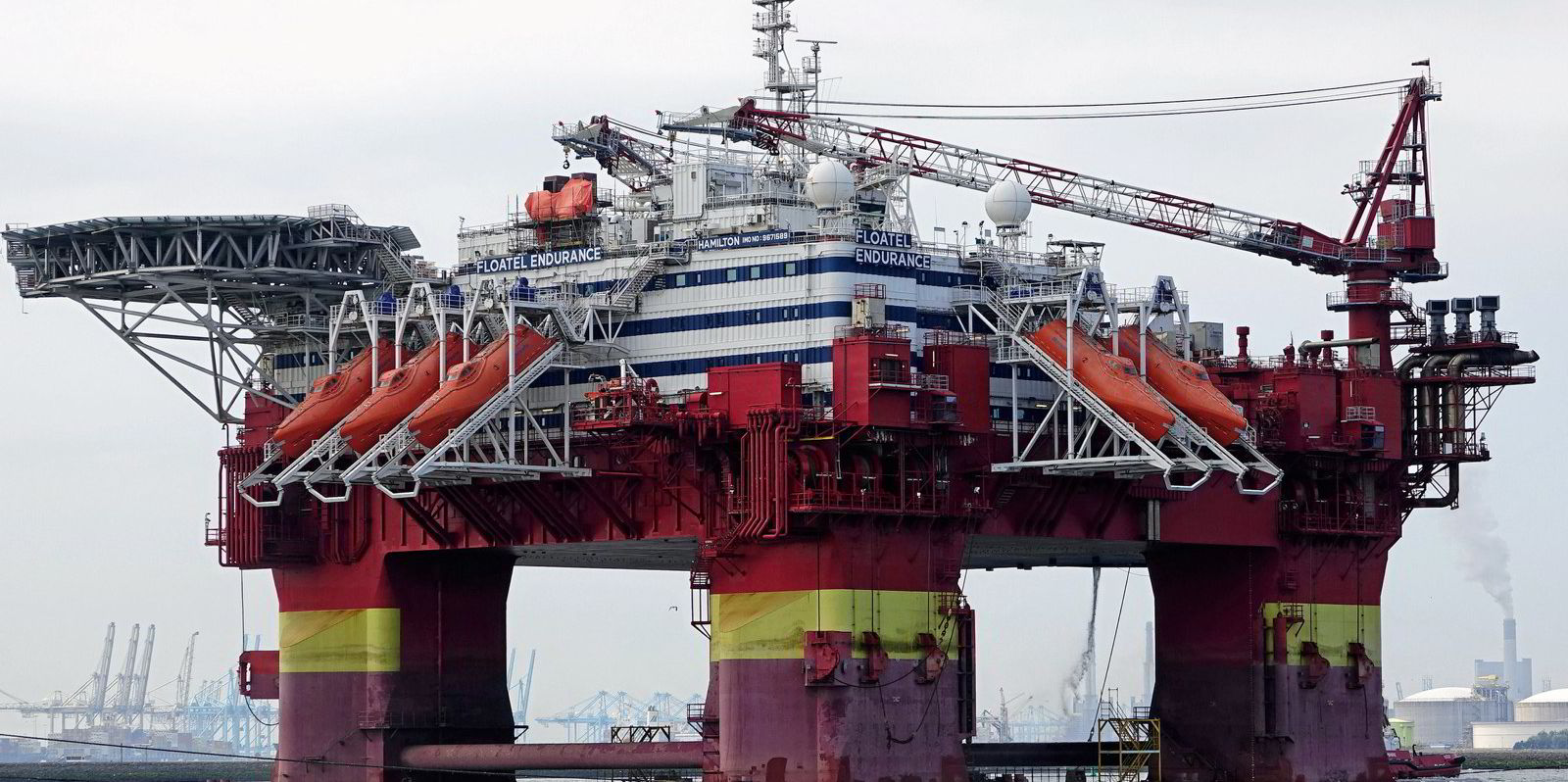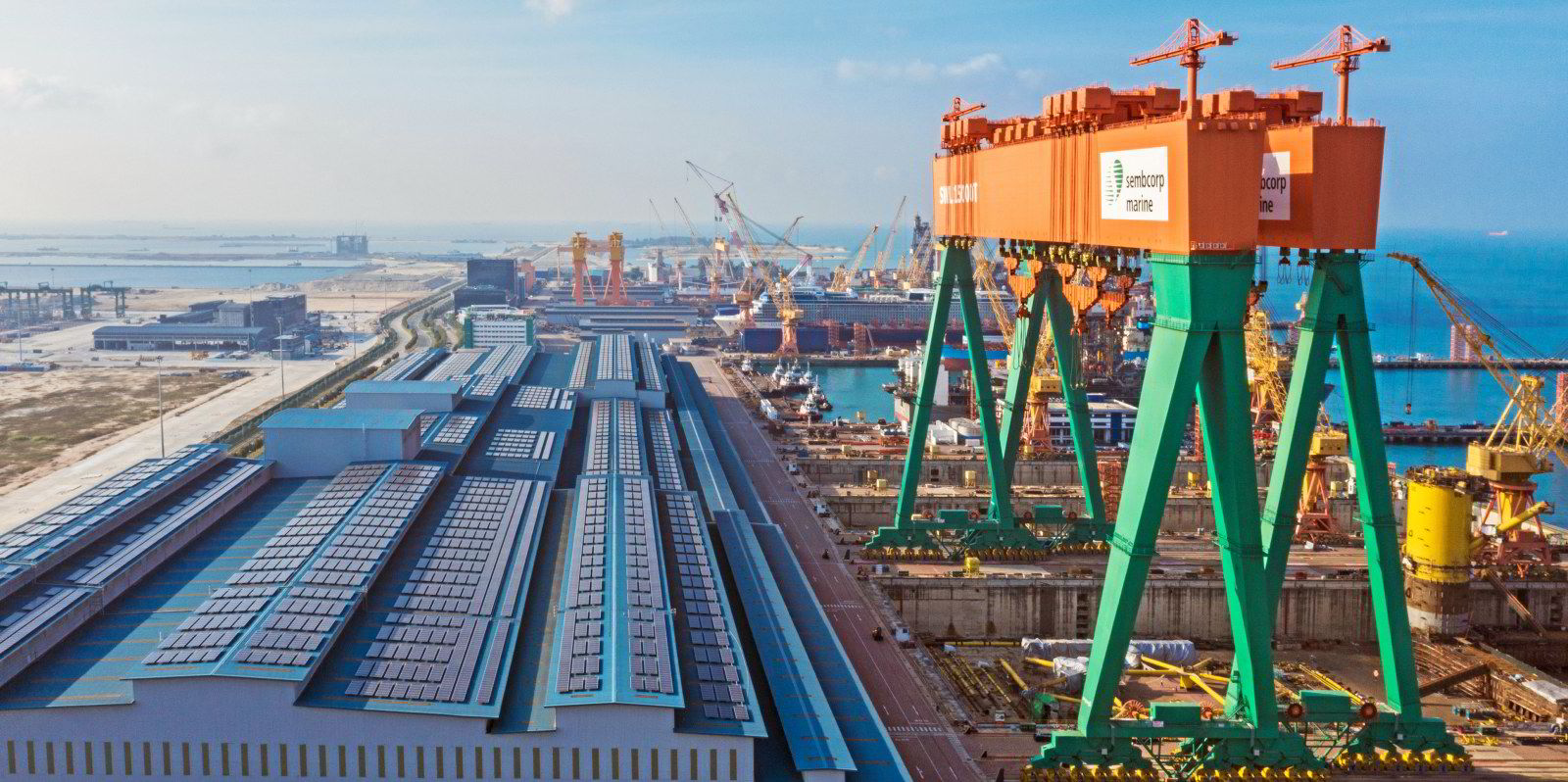The High Court of Singapore has dismissed rig builder Seatrium New Energy’s claim against HJ Shipbuilding, previously Hanjin Heavy Industries (HHI) for damages and incurred for defective welding on subcontracted pontoons for a giant accommodation rig.
At the centre of the legal dispute was Floatal International’s 30,800-gt semi-submersible self-propelled accommodation rig Floatel Endurance, which was delivered to the Norwegian offshore accommodation specialist by Seatrium predecessor company Keppel FELS in 2015.
The rig had been ordered at the Keppel yard by Floatel International in 2012, with delivery set for April 2015.
Fabrication of the rig’s underwater pontoons was subcontracted to HHI, which would build them at its shipyard in the Philippines.
HHI could not meet this deadline for a variety of reasons, according to court records. An agreement was reached for Keppel to take over the remainder of the work, with the value of this work to be set off against the amount payable to HHI. This agreement was referred to as the Side Letter.
This agreement was eventually recorded in a Protocol of Delivery and Acceptance dated 27 December 2013, annexing a Letter Agreement and Price Schedule setting out the sums payable by Keppel to HHI.
The Floatel Endurance was delivered by Keppel to its owner on time on 16 April 2015.
In August 2016 Floatel notified Keppel that welding defects in the pontoons had been detected while the Floatel Endurance was in a Norwegian shipyard. With a charter imminent, only partial repairs were made to allow the vessel to operate under a condition of class.
From December 2017 to July 2018, the Floatel Endurance was berthed and dry docked at Damen Verolme Rotterdam Shipyard where more defects were discovered during a second round of inspections. During this time discussions on the matter with HHI had broken down, Keppel told the court.
Limited repairs were carried out on high-stress areas of the vessel so that it could perform its next charter. At its conclusion, Keppel, at its own cost and expense, transported the Floatel Endurance from Europe to its shipyard in Singapore, where it had control over the program, quality and costs of repairs.
More defects were discovered in Singapore, and it was not until July 2019 that the vessel was deemed to be satisfactory and transported back to Europe.
Keppel submitted that the work undertaken by HHI was defective, and it therefore breached its duties pursuant to the sub-contract.
Tort claim
Keppel further argued that HHI owed it a duty of care in tort to carry out the works with due skill, care and diligence, a duty it also breached.
Keppel claimed damages totalling in the region of $32.5m for the cost of the inspections and repair work, as well as transporting the rig to and from Singapore.
Under tort law, a party can be sued for damages resulting from a wrongful act other than a breach of contract.
HHI denied that its work was defective. It claimed it was only required to carry out the work in compliance with the requirements of the sub-contract, and the welding was only deemed to be defective because it had been measured to a standard higher than what was stipulated.
HHI also claimed that the warranty for the works it performed as stipulated in the sub-contract expired five months before the defects were discovered.
Justice S Mohan, the judge hearing the case, found that HHI did breach its contractual duties to Keppel in the performance of the work. He noted that only a handful of the 131 identified defects would have met contractual specifications but failed the higher level of inspection used in Europe.
What cost Seatrium the case was a clause in the side letter between Keppel FELS and HHI when a Singaporean company took over the completion work on the pontoons.
“…save for [Hanjin’s] warranty obligations for the Sub-Contract Works which it has carried out, [Keppel] shall not have any claims whatsoever against [Hanjin] for the works which will have to be carried out by [Keppel] to complete/remedy the Sub-Contract Works,” the clause stated.
Justice Mohan said that while Seatrium/Keppel had established that there were defects in the works and that HJ/HHI was in breach of the terms of the subcontract, the claim in respect of the welding defects was precluded by the Side Letter.
Seatrium/Keppel’s only recourse was via the warranty obligations, the judge added, but HJ/HHI could no longer be held liable for those warranty obligations because the warranty expired before the defects were discovered.





